Coronavirus: Pubs curfew, flu jabs and a setback for sport
- Published
Here are five things you need to know about the coronavirus pandemic this Tuesday morning. We'll have another update for you at 18:00 BST.
1. Pubs curfew
The prime minister will address the nation at 20:00 BST to set out the next steps for tackling the surge in virus cases. They'll include requiring all pubs, bars and restaurants in England to close by 10pm, starting this Thursday. A renewed call for people to work from home where possible is also expected. Speaking to BBC Breakfast, Cabinet Office Minister Michael Gove said: "If people can work from home, they should. But I stress that it's very important that those people whose jobs require them to be in a specific workplace do so." New restrictions will also be announced for Scotland. Our political editor says Boris Johnson has been weighing up how much the public and his party will tolerate - and the economy can take - and for now, he's opted to take things slowly.
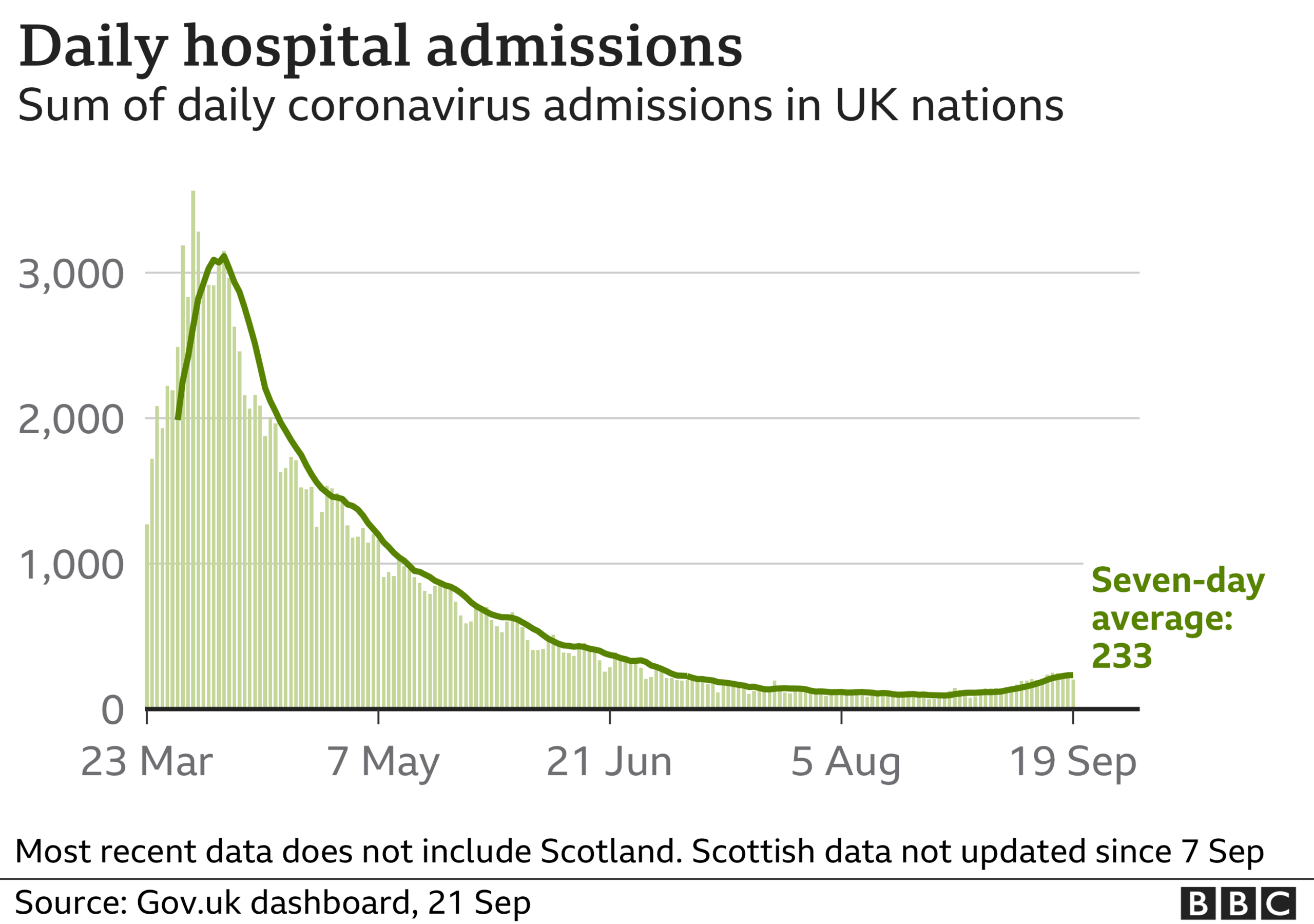
Hospital admissions have begun to creep up as case numbers grow

2. 'Double danger'
Public Health England is launching its biggest ever flu vaccination programme, with the aim of giving jabs to 30 million people. This year anyone over 50 in England can get one for free. Officials hope it'll reduce the burden on the NHS during the winter and minimise the number of people who could become infected with both flu and the coronavirus, with serious and sometimes deadly consequences. Meanwhile, we've been speaking to people suffering with "long Covid" - debilitating symptoms that last for months.
A cold, flu or coronavirus - which one do I have?

3. Bus drivers 'fearful'
The Unite union says it's "extremely worried" about the lack of social distancing on school buses, which it fears is putting drivers at risk. Face coverings aren't compulsory on dedicated school buses in Northern Ireland, Wales or England, although they are recommended. One driver, Sheamus Greene, told the BBC many drivers in his area of County Fermanagh are either vulnerable themselves or worried about passing the virus onto relatives. The government says it's providing £40m to help increase capacity. Read more on the risks around school transport.
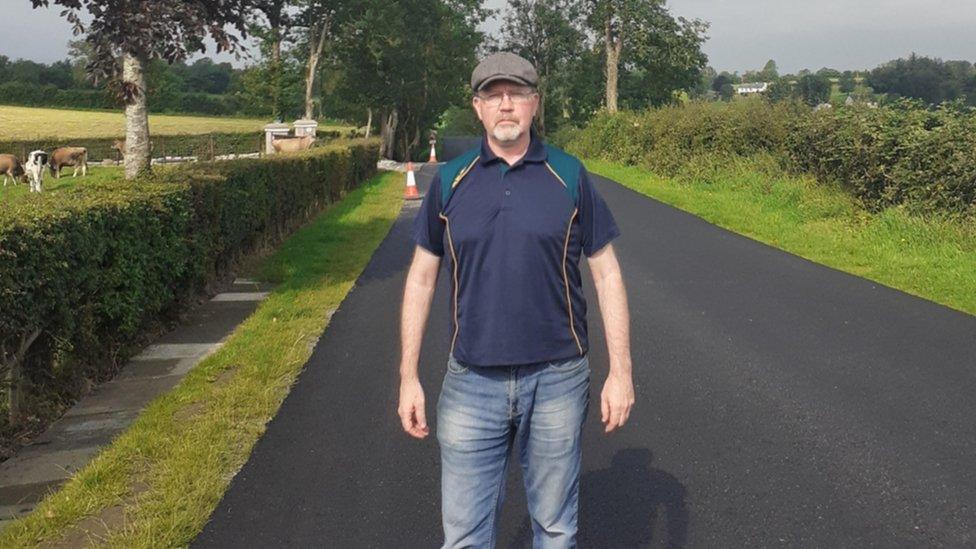
Sheamus Greene says the protective screen around his seat is inadequate

4. Sport reopening set back
The government is halting plans for the return of some spectators to sporting venues next month. Pilot events have been taking place - with a maximum attendance of a thousand - but the surge in infections means going further is no longer an option. Mr Gove said the trials were being "paused" because of the risk of fans mixing on the way to the stadium or during half-time. The leaders of 100 sporting bodies - including the FA, Rugby Football Union, England and Wales Cricket Board and Lawn Tennis Association - have now written to the prime minister to ask for emergency funding to help them survive.
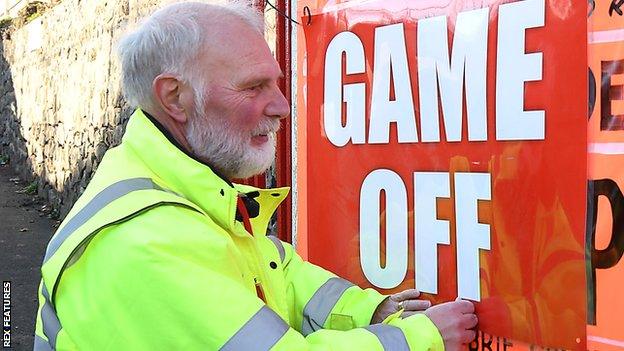
The arts industry was given a £1.57bn support package by the government in July and sporting bodies say they need the same

5. The UK island with no cases
No shopping trips, no nightclubs, no cinema visits - national lockdown felt pretty different for most of us. But on Rathlin Island, a small L-shaped bit of land off the coast of Northern Ireland, they're used to it. One pub, a post office, "a wee museum" and unspoiled landscapes, it hasn't had a single case of coronavirus. BBC Newsbeat's Kirsty Grant has spoken to young people living and working there.
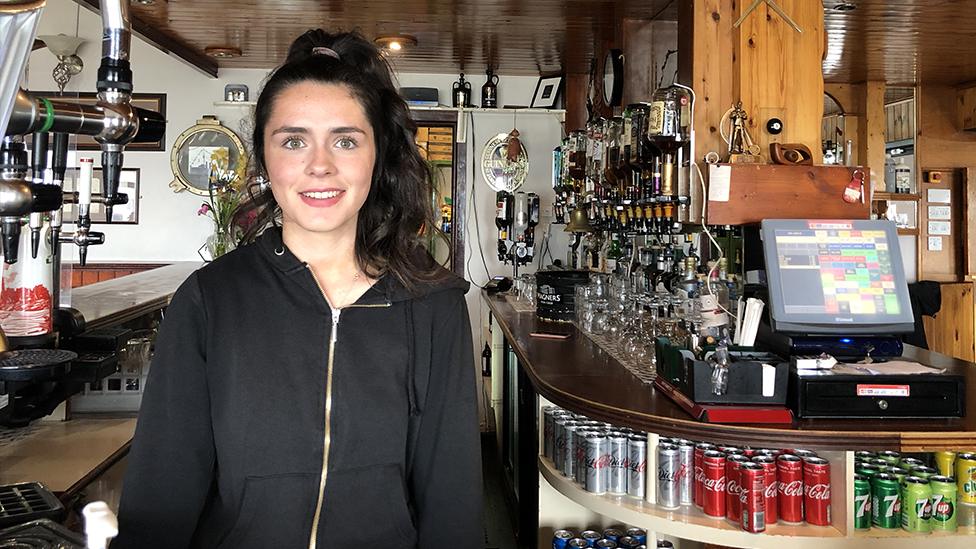
Orlagh says a summer was very different because so few tourists came to Rathlin

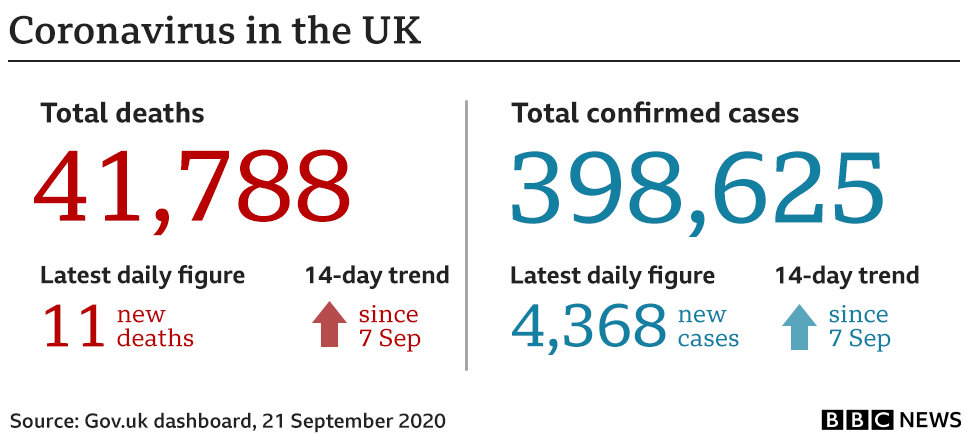
And don't forget...
Find more information, advice and guides on our coronavirus page.
Plus, BBC Reality Check debunks the latest coronavirus conspiracies, including false claims about testing and the origins of the pandemic.


What questions do you have about coronavirus?
In some cases, your question will be published, displaying your name, age and location as you provide it, unless you state otherwise. Your contact details will never be published. Please ensure you have read our terms & conditions and privacy policy.
Use this form to ask your question:
If you are reading this page and can't see the form you will need to visit the mobile version of the BBC website to submit your question or send them via email to YourQuestions@bbc.co.uk, external. Please include your name, age and location with any question you send in.

ILLEGAL LOCKDOWN RAVES: Annie Mac on Coronavirus Newscast
FOOD REVOLUTION: Is the way we produce and buy food set to change for good?
